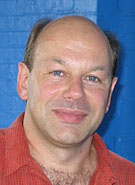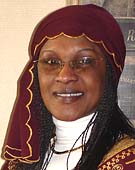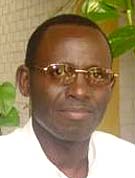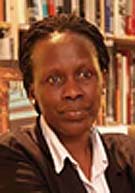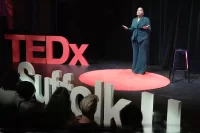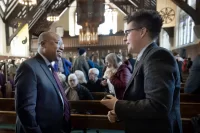
Bates hosts international conference on Rwandan genocide
Scholars and human-rights advocates will join survivors of the 1994 genocide of the Tutsi in Rwanda to discuss its origins and outcomes on Friday and Saturday, March 30 and 31, at Bates College.
Titled “Rwanda: From National Disintegration to National Reunification: The Legacy of the Genocide of the Tutsi in Rwanda,” the conference is open to all free of charge. Sponsors of the event include the Andrew W. Mellon Foundation and the National Endowment for the Humanities.
For more information, please contact Assistant Professor of French Alexandre Dauge-Roth, the event’s organizer, at 207-786-6281 or this e-mail.
This interdisciplinary gathering will gather speakers from Rwanda, Europe and the United States, including members of the Rwandan diaspora living in New England. “Envisioned as a place of encounter and relationship-building, it will allow survivors of the genocide of the Tutsi to share stories, struggles and hopes to promote a better understanding of this traumatic legacy,” says Dauge-Roth.
In a prelude to the conference, students in Dauge-Roth’s seminar “Documenting the Genocide of the Tutsi in Rwanda” will offer posters and performances reflecting their correspondence with genocide survivors at 4:30 p.m. Friday, March 30, in Pettengill Hall. The presentations are part of the Mount David Summit, a celebration of academic achievement at Bates.
The conference itself begins with remarks and a reception at 7:45 p.m. Friday in Chase Hall Lounge. It continues with a day of panel discussions starting at 9 a.m. Saturday, March 31 in Pettengill Hall’s Keck Classroom (G52) and concludes with a Rwandan dance performance and remarks at 8 p.m. in Chase Hall. (Click the links for a full conference schedule and a list of participants.)
The panel presentations will proceed chronologically from a discussion about the origins of the genocide, to eyewitness accounts of the massacre, to an examination of the country’s efforts to rebuild and to effect national reconciliation.
Speakers include faculty in diverse disciplines from Bates, Bowdoin and Colby colleges and the University of Paris; experts on the genocide including a Human Rights Watch specialist on Rwanda, a Rwandan national prosecutor and the director of the Refugee and Immigration Services at Catholic Charities Maine; and survivors including founding members of an association for the genocide’s widows and children, and two authors who bear witness to the massacres in their works.
The event takes place about a week before the 13th anniversary of a genocide whose scale and ferocity stunned the world. As Dauge-Roth points out, 2007 is midway through the timeline for the Rwanda government’s Vision 2020, a program, devised in the wake of the tragedy, for the impoverished nation’s reconciliation, reconstruction and economic revitalization.
“We are 13 years after the genocide and 13 years before 2020,” Dauge-Roth says. “So it’s also a moment where we can learn, evaluate and reflect on what has been accomplished and consider what the challenges are in the longer term.”
Dauge-Roth, a Swiss native who started at Bates in 2005, organized the conference as an extension of his own research into the Rwandan genocide. He is exploring the personal, literary and film narratives created about Rwanda in the years since Hutu extremists massacred as many as a million Tutsi and moderate Hutu.
“I’m examining how these authors use an aesthetic of haunting,” he says. “These testimonies and documentaries find ways to haunt the reader and the viewer, so that we cannot go back to our usual business and forget about it.”
During a 2006 trip to Rwanda, Dauge-Roth established a network of genocide survivors who have corresponded with Bates students in this winter’s “Documenting the Genocide of the Tutsi in Rwanda” seminar. (French is an official language of Rwanda.)
“I hope that students will reflect on what it means to listen to a survivor,” says Dauge-Roth. “There’s a lot to learn from them about the ability to struggle and to live on despite horrific loss.”
Several speakers from the Bates event will also take part in similar panels at Harvard University (5-7 p.m. March 27, Tsai Auditorium, South Building, S010), at the College of the Holy Cross in Worcester, Mass. (4-6 p.m. March 28, Hogan Campus Center, Room 519) and at the University of Colorado at Boulder (April 3).
“My hope is that these conferences will be a key step to building personal relationships with Rwandan community partners for future projects,” Dauge-Roth says.
